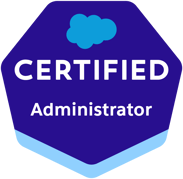My journey in information technology
I graduated from university the year that Google launched Google Earth. And four years before that, my high school librarian told us about these new things called ‘search engines’ and how she thought they would change the world. Being from California, I was in the heart of the modern technological renaissance – but even then a career in ‘IT’ was never something that crossed my mind.
Nearly 20 years later, I have become an IT professional who never learned to code. I did not know when I was in university in San Francisco that I would find myself working with so many talented and technical people in London in the year 2024, making change solutions work. Never thought I would work ‘in IT’ because back then, that held a very different meaning to what it does now.
The power of understanding
 I have learned in the last 10 years with Infomentum, that understanding what needs to be done technically is just as important as understanding why it needs to be done. Effective communication is at the center of successful collaboration in IT. While technical experts excel in deciphering intricate algorithms or troubleshooting software glitches, conveying these concepts to stakeholders with varying levels of technical proficiency requires a different skill set altogether. It requires someone to hold a space for the business vision, and be a part of realising it, not a barrier.
I have learned in the last 10 years with Infomentum, that understanding what needs to be done technically is just as important as understanding why it needs to be done. Effective communication is at the center of successful collaboration in IT. While technical experts excel in deciphering intricate algorithms or troubleshooting software glitches, conveying these concepts to stakeholders with varying levels of technical proficiency requires a different skill set altogether. It requires someone to hold a space for the business vision, and be a part of realising it, not a barrier.
People who find themselves working in an information technology domain, either as a change in career or temporarily as part of a project, often feel overwhelmed understanding the complex and technical terminology. Phrases like "server maintenance," "cloud computing" or "encryption protocols” can feel like a film without the subtitles. But I have found that we all have our part to play in supporting businesses to improve their digital experiences, and not knowing the ins and out of something technically doesn’t mean that I can understand – and convey – what the business benefit is to change.
Bridging the gap
This is where non-technical professionals play a critical role. By translating complex technical ‘jargon’ into real life business terms, I facilitate clearer communication channels between my team and our customers. Whether it's explaining the benefits of implementing a new software solution or negotiating a realistic timeline for delivery, effective communication is key to understanding and getting buy-in from everyone effected by change.
Supporting my technically focused colleagues to understand business requirements and goals is very important too. Sometimes so wrapped up in the how, they can lose sign of the why - user experience, efficiency and practicality. Using Agile scrum to break the work into units of deliverable change, and having the flexibility to course correct to meet the clients needs is key to our repeated success and ongoing partnership.
Upgrading skillsets in a changing landscape
In 2021, I made the first significant change in my skill set in a long time, studying for and obtaining my Salesforce Administrator certification. I have gone on to obtain other Salesforce certifications, in particular working with their digital experience product Experience Cloud (let’s build an integrated website or portal together!).

Becoming deeply familiar with and delivering within the Salesforce ecosystem has illuminated how technology is no longer bound to those with those fluent in programming languages. The vast majority of how we deliver digital solutions with Salesforce is through point and click configuration – the famous ‘clicks over code’ strategy - which means that people like me can design, configure and deliver meaningful changes in a way unthought of even 10 years ago.
Conclusion
The collaborative nature of IT reinforces the importance of diversity in skill sets and perspectives. While technical expertise might still form the backbone of IT operations, it is enriched by the diverse talents of non-technical professionals. Whether it's business analysis, project management, operations support, marketing or customer service, each role contributes uniquely to the collective success of initiatives.
We must challenge stereotypes of what it means to ‘work in IT’ and advocate for the recognition of diverse talents within the team so that we can make a more inclusive and dynamic industry. And for no one is this more important than for women and other marginalised groups who have so much to offer in this space. We see you, and I am so glad you are here.
But really, very sorry to hear about your computer. Have you tried turning it off an on again?







